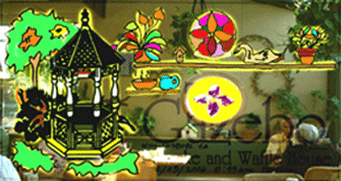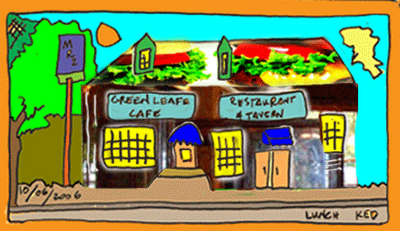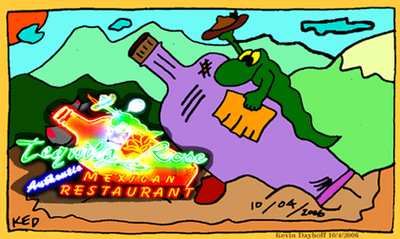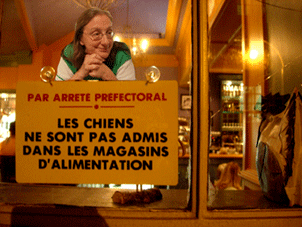“Dayhoff Westminster Soundtrack:” Kevin Dayhoff – “Soundtrack Division of Old Silent Movies” - https://kevindayhoff.blogspot.com/ combined with “Dayhoff Westminster” – Writer, artist, fire and police chaplain. For art, writing and travel see https://kevindayhoffart.blogspot.com/ Authority Caroline Babylon, Treasurer
Tuesday, February 03, 2015
Monday, May 21, 2007
20070520 Secretary of Defense Robert M. Gates signs copies of his book

Secretary of Defense Robert M. Gates signs copies of his book
May 20, 2007
http://www.defenselink.mil/multimedia/
05/20/07 - Secretary of Defense Robert M. Gates signs copies of his book, "From the Shadows," before speaking at the commencement ceremony of his alma mater, the
####
20070520 Secretary of Defense Robert M. Gates College of William and Mary Graduation Exercises Remarks
Courtesy of Joseph McClain, Director of Research Communications, The College of William & Mary and U.S. Department of Defense, Office of the Assistant Secretary of Defense (Public Affairs) Duty Officer
For more information go to: “Secretary of Defense Robert M. Gates transcribed commencement remarks;” or - http://www.wm.edu/news/index.php?id=7791
and -Video of Gates' remarks and -Commencement 2007 coverage
_____
Thank you, President Nichol. Members of the faculty, parents, distinguished guests. Justice O’Connor—Chancellor—a pleasure to see you. Justice O’Connor administered my oath of office as Director of Central Intelligence in 1991 and, more recently, as President Nichol has mentioned, we served on the Baker-Hamilton Commission last year—although my tenure on the group was rather abruptly interrupted.
Speaking of which, in terms of my timing in taking on the responsibilities of the Secretary of Defense, it reminds me of a story told long ago by Senator Richard Russell of
Dr. Kelso and Secretary Coleman, your recognition here today is well-deserved.
To the members of the Class of 2007: Congratulations. I am truly honored—and flattered—to be your graduation speaker.
I presided over 39 commencement ceremonies as president of
To the parents: you must be welling up with pride at the achievements of your children. Having put two children through college, I know there are many sighs of relief as well, and you are probably already planning how to spend your newly re-acquired disposable income. Forget it. Trust me on this. If you think you’ve written your last check to your son or daughter, dream on. The National Bank of Mom and Dad is still open for business.
I guess I am supposed to give you some advice on how to succeed. I could quote the billionaire J. Paul Getty, who offered advice on how to get rich. He said, “Rise early, work late, strike oil.” Or, Alfred Hitchcock, who said, “There’s nothing to winning really. That is if you happen to be blessed with a keen eye, an agile mind, and no scruples whatsoever.”
Well, instead of those messages, my only words of advice for success today comes from two great women. First, opera star Beverly Sills, who said, “There are no short cuts to anyplace worth going.” And second, from Katharine Hepburn, who wrote: “Life is to be lived. If you have to support yourself, you had bloody well find some way that is going to be interesting. And you don’t do that by sitting around wondering about yourself.”
In all those 39 commencements at
I arrived at William & Mary in 1961 at age 17, intending to become a medical doctor. My first year was pure pre-med: biology, chemistry, calculus and so on. I soon switched from pre-med to history. I used to say “God only knows how many lives have been saved by my becoming Director of CIA instead of a doctor.”
When reflecting on my experience here I feel gratitude for many things:
To William & Mary for being a top-tier school that someone like me could actually afford to attend—even as an out-of-state student. By the way, hold on to your hats, parents: Out of state tuition then was $361 a semester.
Gratitude for the personal care and attention from a superb faculty and staff—a manifestation of this university’s commitment to undergraduate education that continues to this day;
Gratitude to those in the greater
Gratitude for one more thing. During my Freshman year I got a ‘D’ in calculus. When my father called from
What William & Mary gave me, above all else, was a calling to serve—a sense of duty to community and country that this college has sought to instill in each generation of students for more than 300 years. It is a calling rooted in the history and traditions of this institution.
Many a night, late, I’d walk down Duke of
I also was encouraged to make that commitment by the then-president of the
We are celebrating the 400th anniversary of the founding of
Brookhiser wrote, “Its leaders were always fighting. Leaders who were incompetent or unpopular—sometimes the most competent were the least popular—were deposed on the spot,” He continues, “The typical 17th Century account of
Jamestown saw the New World’s first representative assembly—the institutional expression of the concept that people should have a say in how they were governed, and having that say brought with it certain obligations: a duty to participate, a duty to contribute, a duty to serve the greater good.
It is these four-hundred-year-old obligations that I want to address for the next few minutes. When talking about American democracy, we hear a great deal about freedoms, and rights, and, more recently, about the entitlements of citizenship. We hear a good deal less about the duties and responsibilities of being an American.
Young Americans are as decent, generous, and compassionate as we’ve ever seen in this country—an impression reinforced by my four and a half years of experience as President of Texas A&M, by the response of college students across America—and especially here at William & Mary—to the tragedy at Virginia Tech, and even more powerfully reinforced by almost six months as Secretary of Defense.
That is what makes it puzzling that so many young people who are public-minded when it comes to their campus and community tend to be uninterested in— if not distrustful of—our political processes. Nor is there much enthusiasm for participating in government, either as a candidate or for a career.
While volunteering for a good cause is important, it is not enough. This country will only survive and progress as a democracy if its citizens—young and old alike—take an active role in its political life as well.
Seventy percent of eligible voters in this country cast a ballot in the election of 1964. The voting age was then 21. During the year I graduated, 1965, the first major American combat units arrived in
Sad to say, that precious franchise, purchased and preserved by the blood of hundreds of thousands of Americans your age and younger from 1776 to today, has not been adequately appreciated or exercised by your generation.
In 2004, with our nation embroiled in two difficult and controversial wars, the voting percentage was only 42 percent for those aged 18 to 24.
Ed Muskie, former senator and Secretary of State, once said that “you have the God given right to kick the government around.” And it starts with voting, and becoming involved in campaigns. If you think that too many politicians are feckless and corrupt, then go out and help elect different ones. Or go out and run yourself. But you must participate, or else the decisions that affect your life and the future of our country will be made for you—and without you.
So vote. And volunteer. But also consider doing something else: dedicating at least part of your life in service to our country.
I entered public life more than 40 years ago, and no one is more familiar with the hassles, frustrations and sacrifices of public service than I am. Government is, by design of the Founding Fathers, slow, unwieldy and almost comically inefficient. Will
These frustrations are inherent in a system of checks and balances, of divisions and limitations of power. Our Founding Fathers did not have efficiency as their primary goal. They designed a system intended to sustain and protect liberty for the ages. Getting things done in government is not easy, but it’s not supposed to be.
I last spoke at William & Mary on Charter Day in 1998. Since then our country has gone through September 11 with subsequent wars in
Serving the nation has taken on a whole new meaning and required a whole new level of risk and sacrifice—with hundreds of thousands of young Americans in uniform who have stepped forward to put their lives on the line for their country. These past few months I’ve met many of those men and women—in places like Fallujah and Tallil in Iraq and Bagram and Forward Operating Base Tillman in Afghanistan—and at Walter Reed as well. Seeing what they do every day, and the spirit and good humor with which they do it, is an inspiration. The dangers they face, and the dangers our country faces, make it all the more important that this kind of service be honored, supported, and encouraged.
The ranks of these patriots include the graduates of William & Mary’s ROTC program, and the cadets in this Class of 2007, who I’d like to address directly. You could have chosen a different path—something easier, or safer, or better compensated—but you chose to serve. You have my deepest admiration and respect—as Secretary of Defense, but mostly as a fellow American.
You are part of a tradition of voluntary military service dating back to George Washington’s Continental Army. That tradition today includes General David McKiernan, William & Mary Class of 1972, who led the initial ground force in
Some of you may know the story of Ryan McGlothlin, William & Mary Class of 2001: a high school valedictorian, Phi Beta Kappa here, and Ph.D. candidate at Stanford. After being turned down by the Army for medical reasons, he persisted and joined the Marines and was deployed to
Ryan’s story attracted media attention because of his academic credentials and family connections. That someone like him would consider the military surprised some people. When Ryan first told his parents about joining the Marines, they asked if there was some other way to contribute. He replied that the privileged of this country bore an equal responsibility to rise to its defense.
It is precisely during these trying times that
During the war of the American Revolution, Abigail Adams wrote the following to her son, John Quincy
You graduate in a time of “great necessities.” Therein lies your challenge and your opportunity.
A final thought. As a nation, we have, over more than two centuries, made our share of mistakes. From time to time, we have strayed from our values; and, on occasion, we have become arrogant in our dealings with others. But we have always corrected our course. And that is why today, as throughout our history, this country remains the world’s most powerful force for good—the ultimate protector of what Vaclav Havel once called “civilization’s thin veneer.” A nation Abraham Lincoln described as mankind’s “last, best hope.”
If, in the 21st century, America is to be a force for good in the world—for freedom, the rule of law, and the inherent value of each and every person; if America is to continue to be a beacon for all who are oppressed; if America is to exercise global leadership consistent with our better angels, then the most able and idealistic of your generation must step forward and accept the burden and the duty of public service. I promise you that you will also find joy and satisfaction and fulfillment.
I earlier quoted a letter from Abigail Adams to her son, John Quincy. I will close with a quote from a letter John Adams sent to one of their other sons, Thomas Boylston Adams. And he wrote: “Public business, my son, must always be done by somebody. It will be done by somebody or another. If wise men decline it, others will not; if honest men refuse it, others will not.”
Will the wise and the honest among you come help us serve the American people?
Congratulations and Godspeed.
###
Sunday, May 20, 2007
Saturday, April 28, 2007
20070427 US Soldiers Indicted In Spanish Court
US Soldiers Indicted In Spanish Court
April 27th, 2007
The CBS News web site is carrying an AP story about a “
U.S. Soldiers Indicted In Iraq Tank Deaths
“Under Spanish law, a crime committed against a Spaniard abroad can be prosecuted here if it is not investigated in the country where it was allegedly committed.”
Although AP was quick to share with readers the “Spanish point of view,” it certainly was not very forthcoming with the American point of view, except for one brief “Following the incident, then-Secretary of State Colin Powell said the troops responded after drawing hostile fire from the hotel. He said a
I’m not sure which I hold in greater contempt, the
The comments in the comment section run the gamut from howling moonbat to the thoughtful and responsible
One commenter got it right… it has been established that “the tanks were hunting for "scopes" and other lenses which would indicate snipers. Their mission was to clear the city of snipers and other troops wherever possible.”
For those who are not aware, it was reported at the time that enemy snipers were holed in the hotel, using the journalists who stayed behind – in the middle of war theatre - as shields…
Another commenter elaborated, “…The unfortunate Spanish journalists were in a war zone, a place with known risks. If they didn't understand the risks to themselves at the time the tanks began to cross the bridge… I'm sorry to say this, but
I’m not sure I can indict the entire country for the acts of some of their politicians and members of judiciary… Folks in glass houses should not throw stones. The world is well aware of that vocal portion of our country’s political leadership that opposes the war… Folks like Cindy Sheehan and Senator Harry Reid, Representative Nancy Pelosi, et al, are heroes among folks who support al-Qaeda on the world stage.
As much as some folks may dismiss this as moonbat politics on the world stage, for the folks involved, it cannot be treated lightly, “For those that don't know, those soldiers cannot set foot anywhere within the (E)uropean union, they will be arrested…”
Anyway, the AP story reads, in part:
(AP) A judge indicted three
Sgt. Shawn Gibson, Capt. Philip Wolford and Lt. Col. Philip DeCamp were charged with homicide in the death of Jose Couso and "a crime against the international community." This is defined under Spanish law as an indiscriminate or excessive attack against civilians during war.
[…]
DeCamp, who is now an adjunct professor of mathematics at the
[…]
At the time of the incident, all were from the 3rd Infantry Division, based in
Couso, who worked as a cameraman for the Spanish TV network Telecinco, died on April 8, 2003, after a
Read the rest here – but not on a full stomach: U.S. Soldiers Indicted In Iraq Tank Deaths
####
Friday, October 06, 2006
20061005 Red Hot and Blue


Red Hot and Blue
http://www.redhotandblue.com/ 10/05/2006 Kevin Dayhoff
For dinner on Thursday, Oct. 5th, 2006, we went to Red Hot and Blue in
####
Thursday, October 05, 2006
20061005 Breakfast and a class at William and Mary


Now this is breakfast.
October 5, 2006
Breakfast and a class at William and Mary
Posted October 5, 2006 by Kevin Dayhoff
Breakfast at The Gazebo in
I can’t find a current syllabus on-line. I received a current syllabus electronically from the student that has facilitated me attending the class. I found a similar syllabus for the class, from 2004, here:
This course will examine the works of several key political philosophers in the Western tradition, starting with the Greeks, through the Romans up to early Christian political thought. We will be concerned to read and analyze these thinkers’ central texts, seeking to discern what is being said, what this tells us about the politics of the societies in which they were written, and how this compares and contrasts with our own society and thought about politics. In addition to the study of specific thinkers and specific texts, we will also seek to consider more broadly what it means to think critically about politics, and the strategies available for doing so.
Course Requirements: Two short papers (6-8 pages) 30% each; Final Examination 30%; and class attendance and participation, 10%.
Required Texts: Available in the Bookstore.
Thucydides History of the Peloponnesian War (trans: Rex Warner)
Plato The Republic (trans: Allan Bloom)
Aristotle The Politics (trans: Carnes Lord)
Augustine The Political Writings
The professor is Simon Stow. Simon Stow HOME - Bio - Publications - C.V. - Courses - Daisy - Government Department
Simon Stow received a BA in Politics, Philosophy and Economics from Corpus Christi College, Oxford in 1993; an MA in Political Science from McGill University in Montreal in 1997; and a Ph.D. in Political Science from The University of California, Berkeley in 2002. He joined the Department of Government at the
Professor Stow's research focuses on the use and abuse of literature in political thought and analysis. Arguing that -- influenced by a 'Political Turn' in literary criticism -- there has been a 'Literary Turn' in much contemporary political theory, he seeks to identify what is promising and what is problematic about the use of literature in contemporary political thought and analysis…
####
Kevin Dayhoff writes from












